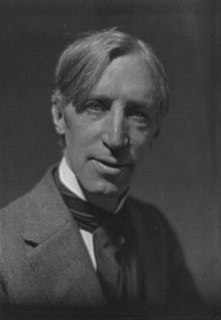A Quote by Albert J. Nock
It would seem that in Paine's view the code of government should be that of the legendary King Pausole, who prescribed but two laws for his subjects, the first being, Hurt no man, and the second, Then do as you please.
Related Quotes
A very wise father once remarked, that in the government of his children, he forbid as few things as possible; a wise legislature would do the same. It is folly to make laws on subjects beyond human prerogative, knowing that in the very nature of things they must be set aside. To make laws that man cannot and will not obey, serves to bring all law into contempt. It is very important in a republic, that the people should respect the laws, for if we throw them to the winds, what becomes of civil government?
Every state and the federal government have laws that protect people from acts of violence, and those laws should be enforced. What I want to see in America is that if you hurt a human being and you bring pain in their life, that's all we need to know. If you did it illegally, you should be prosecuted.
Liberty ... was a two-headed boon. There was first, the liberty of the people as a whole to determine the forms of their own government, to levy their own taxes, and to make their own laws.... There was second, the liberty of the individual man to live his own life, within the limits of decency and decorum, as he pleased -- freedom from the despotism of the majority.
For in a government of laws and not of men, no man, however prominent or powerful, and no mob however unruly or boisterous, is entitled to defy a court of law. If this country should ever reach the point where any man or group of men by force or threat of force could long defy the commands of our court and our Constitution, then no law would stand free from doubt, no judge would be sure of his writ, and no citizen would be safe from his neighbors.
For a man's property is not at all secure, though there be good and equitable laws to set the bounds of it, between him and his fellow subjects, if he who commands those subjects, have power to take from any private man, what part he pleases of his property, and use and dispose of it as he thinks good.
Government has only one religion - India first! Government has one holy book - the Constitution. The Government must be immersed in only one Bhakti- Bharat Bhakti! The Government's only strength is Jan Shakti! Government's only ritual is the well being of the 125 crore Indians! The only code of conduct of the Government should be 'Sabka Saath, Sabka Vikas!
These, then, are the four kinds of royalty. First the monarchy of the heroic ages; this was exercised over voluntary subjects, but limited to certain functions; the king was a general and a judge, and had the control of religion The second is that of the barbarians, which is a hereditary despotic government in accordance with law. A third is the power of the so-called Aesynmete or Dictator; this is an elective tyranny. The fourth is the Lacedaemonian, which is in fact a generalship, hereditary and perpetual.
If Aristotle, Livy, and Harrington knew what a republic was, the British constitution is much more like a republic than an empire. They define a republic to be a government of laws, and not of men. If this definition is just, the British constitution is nothing more or less than a republic, in which the king is first magistrate. This office being hereditary, and being possessed of such ample and splendid prerogatives, is no objection to the government's being a republic, as long as it is bound by fixed laws, which the people have a voice in making, and a right to defend.
There are two kinds of second class men in business. There is the man who puts money first and service second. There is the man who puts service first and money second, who never has any money. The first class man in business is the man who is made up out of rolling the other two kinds into one man and working them together.







































